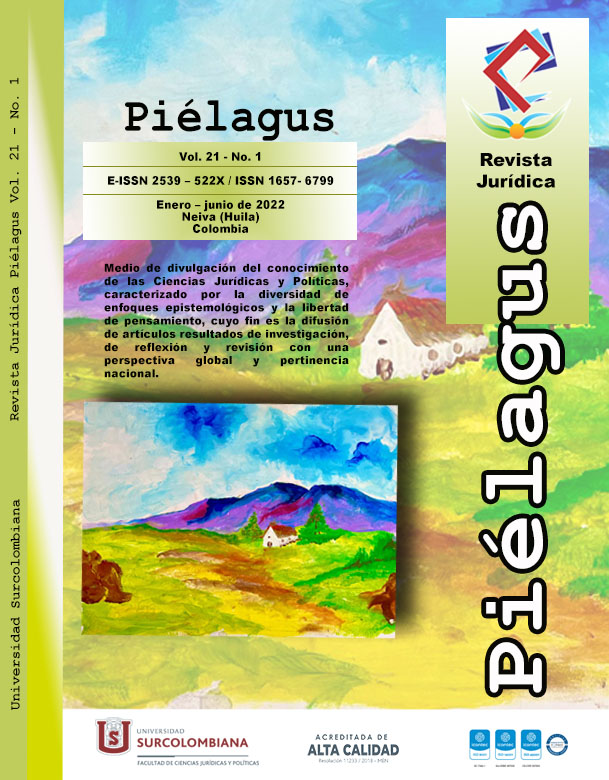Efficiency of the fiscal control reform in Neiva, Department of Huila
##plugins.themes.bootstrap3.article.main##
The purpose of this article is to analyze the efficiency of the Fiscal Control reform in the department of Huila, specifically in the city of Neiva. This activity is exclusively public and ensures the optimal administration of state resources, thereby promoting prosperity and responsibility in execution methods. Moreover, this study was deemed interesting to conduct as it allowed for the identification of the management of the territorial comptroller’s office and how it has been exercising its role in Neiva. The significance of its efficiency, evolution, and the existence of a series of reforms in the models aimed at generating a scenario for analysis, critique, and interpretations of the topic were also explored.
For this reason, the bibliographic and jurisprudential review encompassed important aspects throughout the development of this document. It demonstrated, through a historical chronology, how control has been exercised based on principles of efficiency and transparency. Each of the concepts presented here is related to the concept of administrative action, its elements, typology, and other aspects that enrich the analysis and define the impact it has had on the Territorial Comptroller’s Office, specifically in Neiva, the geographical scope of this study.
Downloads
##plugins.themes.bootstrap3.article.details##
I. Auditoría General de la República. (2009). Hacia la Transformación del Control Fiscal. Bogotá, Colombia.
II. Becerra, J. (2014). El principio de libertad en el derecho espacial. [Tesis de pregrado, Universidad Católica de Colombia].
III. Brewer, A. (2013). Tratado de Derecho Administrativo y sus principios fundamentales. Jurídica Venezolana.
IV. Congreso de la República de Colombia. (2002). Código disciplinario único. Función pública. Bogotá, Colombia.
V. Díaz, C. (2019). Significados del acto administrativo en la jurisprudencia de la Corte Constitucional. [Tesis de maestría, Universidad EAFIT de Colombia].
VI. Escobar, A. (2019). ¿Por qué el sistema de control fiscal colombiano está en crisis? Revista Semana Foro, 1(2).
VII. Molina, C. (2002). El control de la legalidad de los actos administrativos en Colombia. Opinión Jurídica, 1(1), 59-72.
VIII. Orozco, M. (2017). Control Fiscal colombiano desde la perspectiva del modelo español. [Tesis de maestría, Universidad Católica de Colombia].
IX. Ortega, L. (2018). El acto administrativo en los procesos y procedimientos. Bogotá, Colombia: Universidad Católica de Colombia.
X. Presidencia de la República de Colombia. (2020, 16 de marzo). El servicio público - Función Pública. https://www.funcionpublica.gov.co/eva/gestornormativo/norma_pdf.php?i=110374
XI. Red Jurista. (2000, 18 de agosto). Ley 610. https://www.redjurista.com/Documents/ley_610_de_2000_congreso_de_la_republica.aspx#/
XII. Rodríguez, L. (2017). Derecho administrativo general y colombiano. En Administración Pública electrónica: hacia el procedimiento administrativo electrónico. Bogotá, Colombia: Universidad del Rosario.
XIII. Rodríguez, L. (2021). Derecho administrativo general y Colombiano. Temis.
XIV. Santofimio, J. O. (1996). Tratado de derecho administrativo. Bogotá, Colombia: Universidad Externado de Colombia.
XV. Torres, A. J. (2015). El derecho y las tecnologías de la información y la comunicación (TIC). Bogotá, Colombia: Universidad Católica de Colombia.
XVI. Vargas, O. S. (2021). El acto administrativo Verbal: aproximación al concepto y uso en Colombia. Bogotá, Colombia: derecho administrativo.
XVII. Acto Legislativo 02. (2015). Elección de contralores departamentales, distritales y municipales. Bogotá, Colombia: Institucional.
XVIII. Constitución Política de Colombia. Const, (1886). Art 267.
XIX. CConst, C-379/04, M. P. A. Beltrán Sierra. (Corte Constitucional 27 de abril de 2004).

















